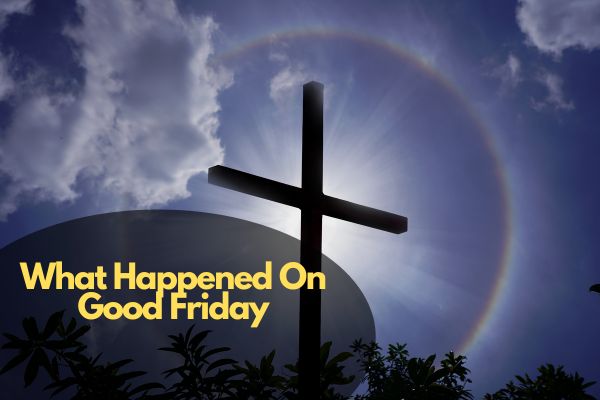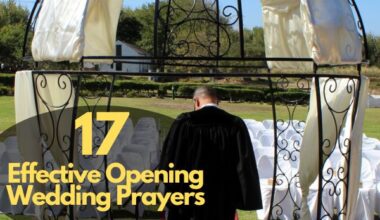Table of Contents Show
Good Friday is a traditional festival that commemorates Jesus Christ’s crucifixion. However, a concordance study reveals that the word Good Friday does not appear in the New Testament.
But do the four Gospel narratives mention Friday as the day Jesus died and was buried? If not, what happened on Good Friday?
What Happened On Good Friday
On the first Good Friday, following a series of trials and interrogations by Jewish and Roman authorities, Jesus was sentenced to death by crucifixion, a standard Roman penalty.
Aware of Jesus’ innocence, the Roman governor, Pontius Pilate, gave the multitude the option of freeing Jesus or Barabbas, a murderer; they picked Barabbas. Pilate ceremonially washed his hands to claim innocence in Jesus’ execution.
Three days, three nights.
Many people forget the fact that Jesus only offered one sign that He was the Messiah and Son of God, which He referred to as the “sign of the prophet Jonah.” He proclaimed, “For as Jonah was three days and three nights in the belly of the great fish, so will the Son of Man be three days and three nights in the heart of the earth” (Matthew 12:39–40, emphasis added).
Take close note of this: He stated that he would be buried for precisely three days and three nights (72 hours). This unequivocal declaration calls into question the long-held belief that Jesus died on the cross about 3 p.m. on Friday, was buried before the Sabbath began at sunset, and was risen before daybreak on Sunday.
There were two Sabbaths that week.
Understanding Jesus’ words regarding “three days and three nights” is made simpler when we remember that Jerusalem kept two Sabbaths that week. Jesus visited Jerusalem that week to honor the Passover (Matthew 26:18–19).
The Feast of Unleavened Bread was placed immediately following the Passover. This celebration lasts seven days, with the first and seventh days being yearly Sabbaths—or high days (Leviticus 23:4–8).
These two yearly Sabbath days alternate between various days of the week each year, and they are governed by the Hebrew calendar.
When describing the chronology of the crucifixion and resurrection, most Christians neglect or overlook the yearly Sabbaths since they do not observe them. The phrase goes, “Out of sight, out of mind.”
Understanding Jesus’ words regarding “three days and three nights” becomes easier when we consider that Jerusalem kept two Sabbaths that week—an annual Sabbath and a weekly Sabbath.
So what happened on the Friday of the crucifixion week?
In the year Jesus was crucified, the yearly Sabbath of the first day of unleavened bread fell on Thursday. Since Jesus died before this yearly Sabbath day, His crucifixion and death occurred on Wednesday afternoon. He was buried quickly before the yearly Sabbath began at nightfall.
John’s Gospel supports this with the following key statement: “Therefore, because it was the preparation day, that the bodies should not remain on the cross on the Sabbath (for that Sabbath was a high day), the Jews asked Pilate that their legs might be broken and that they might be taken away” (John 19:31). Again, this “high day” Sabbath was an annual Sabbath, not a weekly Sabbath that always occurred on Saturday.
Jesus was entombed just before dusk on Wednesday. If we count ahead three days and three nights (or 72 hours), we can see exactly when He rose again: just before sunset on Saturday evening.
This is fully consistent with the gospel stories of the ladies visiting the tomb very early on Sunday morning and finding no one there. Jesus had already risen hours before!
Conclusion
In the Christian religion, Good Friday commemorates Jesus Christ’s crucifixion. Reflecting on the events that occurred on this sad day, from Jesus’ arrest and trial to His death and burial, helps Christians understand the great importance of His sacrifice.
Good Friday is a reminder of the enormous love and redemption offered by Jesus’ death, which leads to hope, forgiveness, and eternal life for everyone who accepts His sacrifice.








